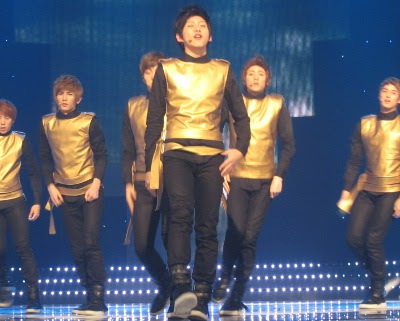The family's busy- the kids mainlining YouTube or sleeping, my wife and our friend taking a hike- so it's my chance. I skip down the steps of our hostel, past the magic-markered endorsements of the place on the wall, and onto the streets of Sandakan.
This is a working-class town, a port city on the east coast of Borneo. From the washrooms in our hostel you can see the Sulu Sea. Unfortunately, that's about the best interaction you can have with the sea here. Long monopolized by business, the town has no recreational purpose for the blue waters next to it. For a vast tropical island, Malaysian Borneo has little in the way of pristine, enticing beach attractions.
 |
| Unloading fruit at the Sandakan market dock. |
Five or six off-white, block-long apartment buildings dominate the downtown. Four stories tall, their sides are festooned with rusting balconies, satellite dishes, air conditioning units, and iron gratings. Washing hangs down from the sides, years of dye staining the paint dull hues- where the monsoons haven't peeled it away to the concrete. The odd tree has taken root in a crack or abandoned balcony. With the clothes, they bring much-needed colour to the drab exteriors.
Sandakan was once the capital of Malaysian Borneo. Bombed and burned out of existence during WWII by both the Japanese and Allies, it never really recovered. Local pamphlets, though, still recall better times, when logging and palm oil shipments made the city boom. Once, we're told, there were more millionaires here per capita than anywhere in the world.
Those times are long gone, forgotten like the English author who lived here in the 40s, her stately home still a tourist site looking over the city. Now, young men stand on street corners, hawking packs of cigarettes.
I walk along the manageable sidewalks, the storefronts darkened by the second-story balconies a foot or two over my head. Sunshades at street level block the blistering afternoon sun from baking the clerks inside the jewellery and cellphone shops.
Tourists aren't uncommon in town, but I still get stares from the locals. Obviously not many wander this far into their daily lives. I make a brief attempt to walk out of town along the shore road, but turn around after a few blocks as the residences give way to into industrial docks, well-maintained but devoid of life.
I step down onto a sidewalk and catch the eye of a local sitting in a restaurant. A few nice words are exchanged and I throw a Hail Mary down the field of Meeting the Locals. I sit down with him and in a few moments he helps me order a roti and bottle of water.
Turns out he's a tour guide. I get the sense it's a freelance job, that he picks up his business where he can. A young man, his English is excellent. It's also pretty clear that he's not on the meter: there's no pitch coming. We just exchange pleasantries about our countries, our lives.
“I've got my PADI,” he says. “I hope to go to Indonesia to work for a dive shop there.”
I marvel that he'll go to Indonesia, where wages are even lower and standards somewhat worse than here. “There's work there for me. A chance to see somewhere else.” Sandakan doesn't have that opportunity. One day he hopes to have his own business.
The roti comes- its excellent- and we chat a while longer. He helps translate my bill payment, I wish him goodbye, and I'm on my way. I realize it's one of the few plain conversations I've had with a local- no business in the offing, nothing sought other than a few moments of unusual company.
It hasn't happened often enough.







